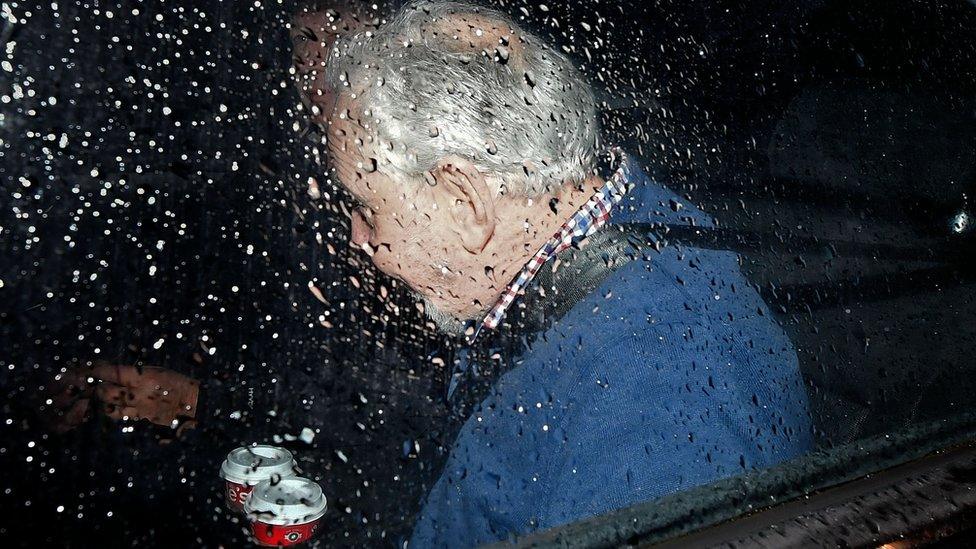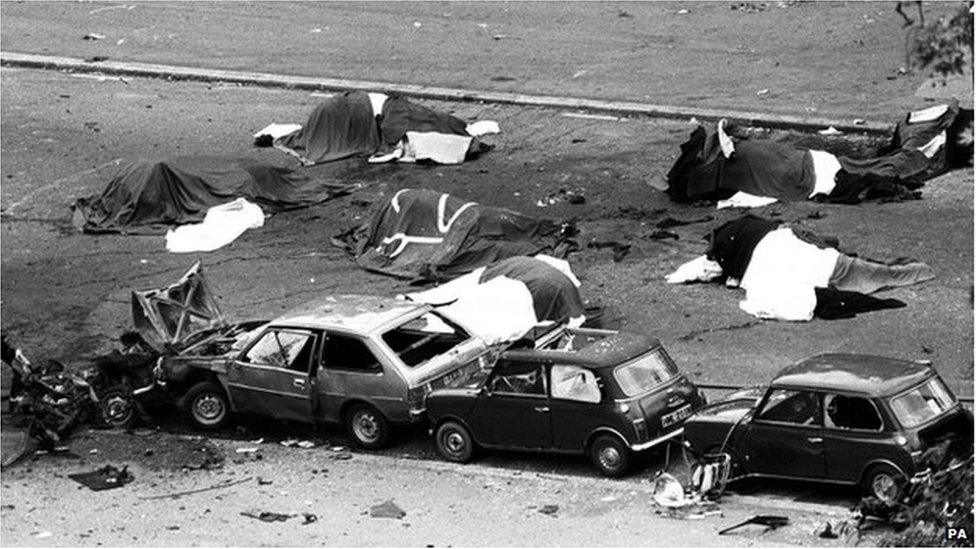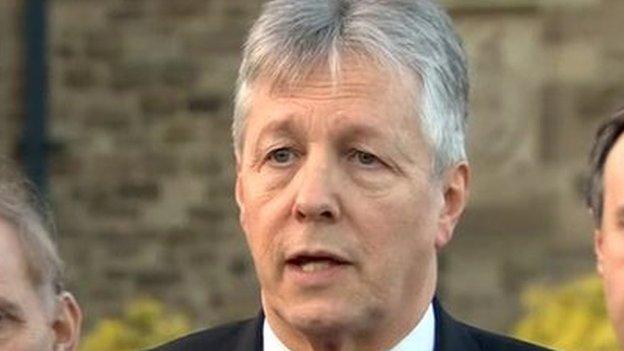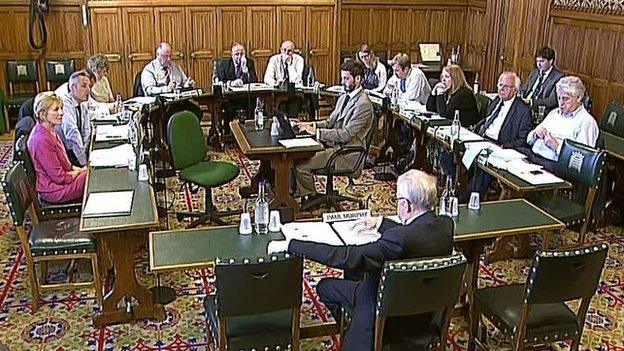John Downey: Hyde Park bomb accused appears at court
- Published

John Downey appeared at court in Dublin on Tuesday
A man due to be charged with the murder of two soldiers in Northern Ireland in 1972 has appeared at court in Dublin.
John Downey, 66, who was previously accused of the murders of four soldiers in the 1982 IRA Hyde Park bombing, appeared on foot of a European extradition warrant.
UDR members Alfred Johnston and James Eames were killed in the bomb attack in Enniskillen in 1972.
Mr Downey was remanded in custody until 23 November.
A judge indicated this was for a full extradition hearing on that date.
In a statement, Sinn Féin MLA Gerry Kelly said Mr Downey's arrest and remand was "an act of gross bad faith by the British Government which again gives lie to claims by British Prime Minister Theresa May over legacy investigations".
He added: "John Downey has been a supporter of the peace process over many years and to pursue his arrest and extradition now is vindictive and bad faith."
Mr Downey's lawyer told the court that his client is anxious to get bail on health grounds as he has had a pacemaker fitted.
The court heard Mr Downey can apply for bail on Thursday, provided papers are lodged by 14:00 local time on 7 November.
The PSNI is seeking to have Mr Downey extradited to Northern Ireland.

Four soldiers and seven horses were killed in the Hyde Park attack
He was due to stand trial in 2014 over the Hyde Park attack, but the trial collapsed because he was wrongly told he was not wanted by police.
Mr Downey was arrested at his home in Creeslough, County Donegal, by Irish police on Monday, using a European Arrest Warrant.
The PSNI confirmed detectives from An Garda Siochana (in a joint operation with the PSNI) had arrested a 66-year-old man in Donegal on suspicion of the murder of two UDR soldiers in 1972 and on suspicion of aiding and abetting an explosion.
The investigation into the murders of Mr Johnston and Mr Eames was re-opened by the Police Service of Northern Ireland (PSNI) four years ago, shortly after the Hyde Park bomb trial collapsed.
A fresh file on the killings was submitted to the Public Prosecution Service (PPS) in September 2014, and a decision was taken to charge Mr Downey.
The PPS said the families of the two UDR soldiers are being kept informed of developments.
David Cameron: Downey "should never have received the letter"
The Hyde Park attack on 20 July 1982 killed Squadron Quartermaster Corporal Roy Bright, Lieutenant Anthony Daly, Trooper Simon Tipper and Lance Corporal Jeffrey Young.
Mr Downey's trial collapsed after it emerged he had been sent a so-called "on the runs" letter which said he was not wanted for arrest, questioning or charge by the police.
The news that he would not face trial prompted an immediate outcry, with the then-prime minister David Cameron telling the Commons that the letter he received in error had been a "dreadful mistake".

Who are the on the runs?
The Northern Ireland Good Friday Agreement of 1998 meant anyone convicted of paramilitary crimes was eligible for early release. However, this did not cover those suspected of such crimes, nor did it cover people who had been charged or convicted but who had escaped from prison.
Negotiations continued after the signing of the agreement between Sinn Féin and the government over how to deal with those known as On the Runs.
Sinn Féin sought a scheme that would allow escaped prisoners and those who were concerned they might be arrested to return to the UK, but a formal legal solution proved difficult to establish in the face of strong unionist opposition.
Against this backdrop, the IRA had still not put its weapons beyond use and Sinn Féin needed grassroots republicans to continue supporting the peace process.

Families of the four victims of the Hyde Park bombing are currently suing Mr Downey.
They are taking a civil action, seeking financial compensation and a finding that he was liable for what happened.
In 1974, Mr Downey was convicted by an Irish court of IRA membership and served time in Portlaoise prison.
- Published27 February 2014

- Published24 March 2015
